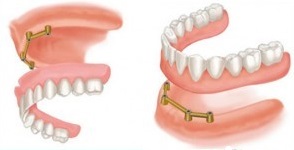
آناتومی شکست ایمپلنت
2015-12-07
نکاتی در خصوص موقعیت قرارگیری پروتز ایمپلنت
2015-12-08Implant surgery is not perfect, and implant failures due to surgery will occur. While many issues may affect implant success, patient selection is important. Screening should include psychological makeup, medical and dental conditions, and behavioral issues such as smoking and alcohol usage. Adequate diagnosis of bone and soft tissue quality and quantity is equally important. In this regard, we believe cone beam technology is the best way and may soon become the standard of care
In this technique article, we will review some common surgical implant failures, with special reference to cone beam planning and guided implant surgery failures. Both surgical and communication failures can cause dental implant failures. The most common surgical error is poor planning. Despite the explosion in the use of planning software programs and third party vendors offering planning services, implant success is not guaranteed. Guided surgery does not ensure that we place the implant into good quality bone or that the angulation is correct, or that the nerve is not injured
It is a fallacy to believe that, just because we are able to “see” the bone in 3-D, we make the right decisions in placing the implant in its correct position (Fig 1). Guided surgery is not perfect and severe consequences can result from misguided implant placement (Fig 2). When an implant fails, biological changes occur with bone loss and soft tissue loss, creating a potential need for major surgical procedures to reconstruct the previous bone volume to a pre-surgical level or a level favorable to implant placement. Some of these procedures can become medical in nature or require hospitalization.
If bone or soft tissue must be replaced, it may be necessary to harvest bone from a second surgical site, or to use an off-the-shelf bone substitute or growth factor product. This could cause patient concerns and may add significantly to cost. The implant, and maybe the abutment and crown, may have to be replaced. Dealing with such failures raises questions about who will cover the expense of the complication or who will pay. Many implant dentists will replace a failed implant at no charge. Should they be expected to replace the abutment and crown, or even worse, a custom milled bar and porcelain prosthesis that may cost from $15,000 to $20,000?
There are also psychological consequences when an implant fails. Patients may feel that there is something wrong with them personally, creating depression. If they have lost a major amount of bone or soft tissue, or if they lose a complete fixed case and have to transition from a fixed type of denture to a removable one, they face the psychological consequences of reverting to a removable denture
Many implant surgery courses taught on weekends or in preceptorships promote the concept that “implant surgery is easy.” Management of complications is rarely addressed. It is important to be aware that implant surgery is challenging and that complications can be rather drastic and require unique skills to repair. Therefore, it is incumbent upon each of us to work as a team to promote the best interests of our patients for a successful outcome
By Dr. Bernard






